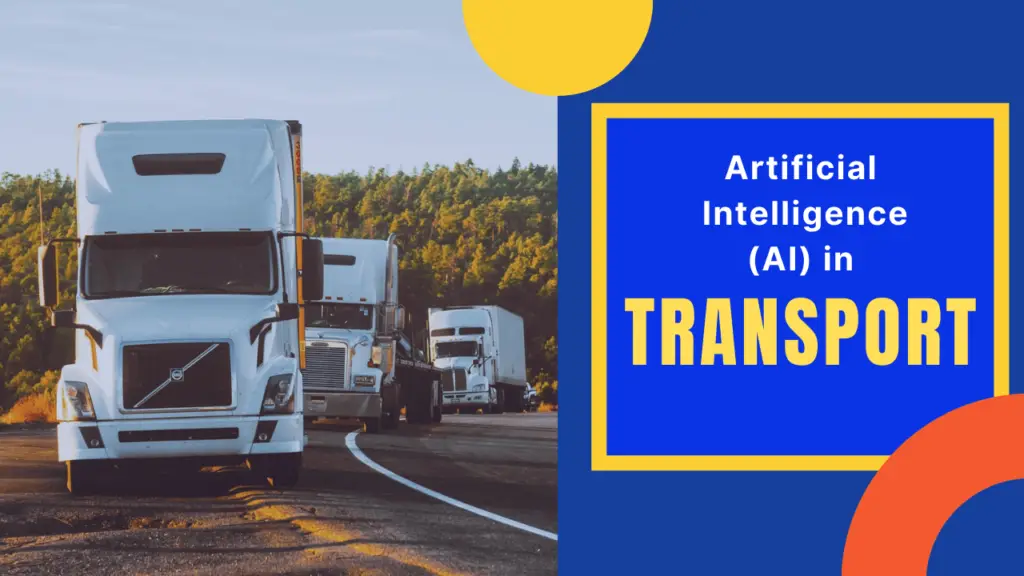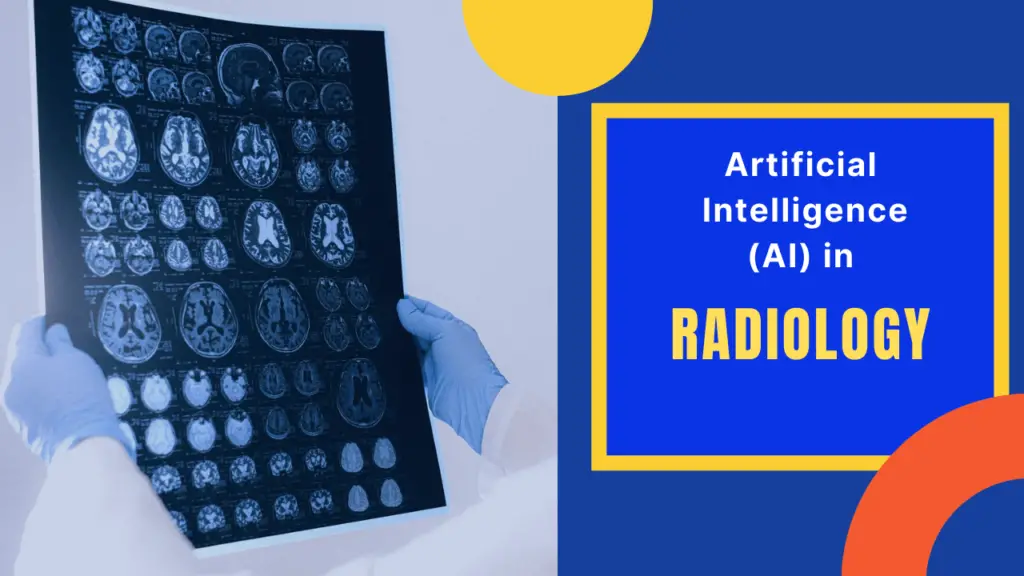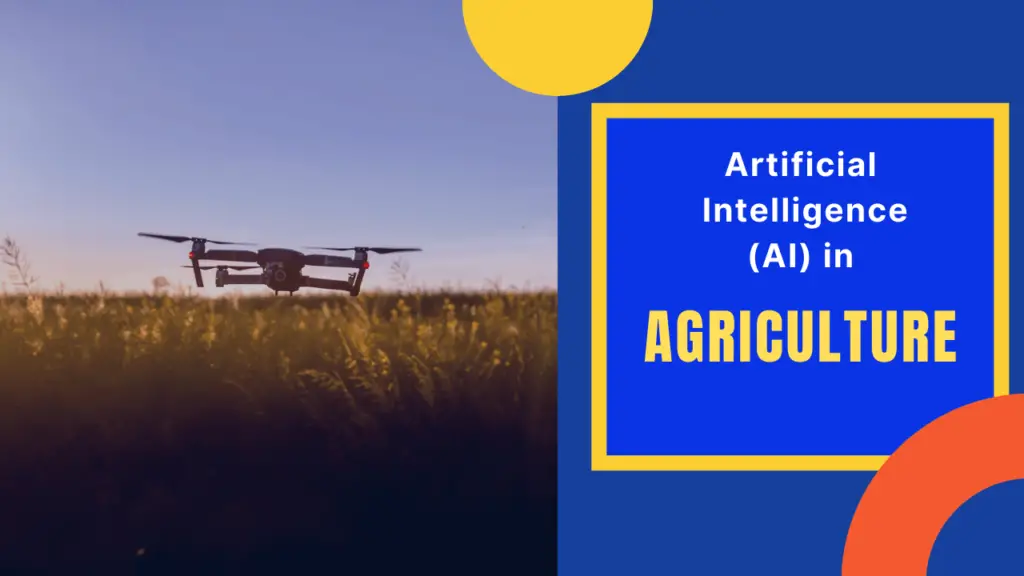The transport industry has started to use AI in its products and services. AI is observed more in everyday transportation in the detection of traffic accidents as well as self-driving cars and autonomous trucks. AI in transportation can easily gather traffic data for reducing congestion and improving the public transport schedule. Smart traffic algorithms can effectively control high and low traffic patterns. Moreover, AI helps predict the path of pedestrians and reduces the chance of injuries and traffic accidents. Machine learning can be used to prevent traffic jams and improve public safety. AI when applied to decision-making systems can streamline traffic management.

AI applications in transportation
1. Autonomous vehicles
Autonomous transportation is no longer a dream but a reality. AI deploys its processing capabilities to power autonomous vehicles. With these driverless vehicles, the transmission and processing of real-time data are critical. Hence any confusion within the process can lead to a disastrous outcome. Autonomous taxis are becoming common in Tokyo but there the drivers sit in autonomous cars for safety reasons so that they can take control of the car in emergencies. Autonomous trucks are being implemented in the USA that carries goods. The use of these autonomous trucks reduces maintenance costs by around 45 percent.
2. Traffic Management
AI has control and optimization capabilities that could be used to better manage traffic systems. AI used in traffic management can streamline traffic. AI also has the prediction capability for identifying the issues in the environment that may cause heavy traffic.
3. Passenger Transportation
Passengers’ safety has always remained a big issue in the transport industry. Nowadays, AI is being deployed in the autopilot system which is an important part of air travel. Only 7 minutes of a Boeing flight gets controlled by man according to New York Times, while the rest gets handled by an autopilot. AI has immensely impacted public transport. Driverless buses currently transport passengers with the help of GPS and cameras. AI technology in transportation reduces human errors, reviews vehicle maintenance, and monitors safety regulation compliance in a way that decreases the effects of driving risks.
4. Airport Face scanning
Airports will soon ditch traditional transports and adopt AI-powered face-scanning technology. Scanners will be used in airports to confirm a passenger’s identity before allowing him to board. This technology is the future of flying.
5. Smartphone Applications
There are apps for AI-enabled real-time traffic updates via services like Google Maps. Such apps use location data gathered from smartphones for analyzing traffic conditions within the local area and keeping the users updated about ongoing traffic.
6. Law Enforcement
AI is being used in law enforcement to help law officers to identify people breaking the rules, for instance, to identify people texting during driving. AI can accurately detect if anyone texts during driving and sends alerts to nearby officers to deal with them. An example is Motorola Solution that brings AI-enabled voice assistants to law enforcement vehicles. The police only state a license plate and thereby the system looks up the data and responds within few minutes.
7. Flight Delay Prediction
One major problem commonly faced by air transport is flight delay. The expense in the US due to flight delays is 39 billion dollars. Flights delay not only causes financial loss but also badly impacts passenger’s flying experience. AI has helped to resolve these issues to a great extent. Using computer vision as well as data lake technology, the industry offers amazing service to passengers by improving their journey experience and cutting down wait times. Flight delays can be caused by anything, hence updating flight details to passengers timely is crucial to saving them from waiting unnecessarily.
8. Drone Taxis
Drone Taxi is an innovative application of AI in transport. Pilotless helicopters offer a unique solution for combating carbon emissions, eliminating traffic congestion, and reducing the need for costly infrastructure construction plans. Drone taxis help people quickly reach their destined places thereby minimizing the commute time.
Advantages of AI in transportation industry
There are numerous advantages of AI in the transportation industry such as:
- AI-enabled transportation reduces traffic accidents and increases safety. Use of smart unmanned vehicles can lead to a drop in night accidents involving truck drivers. Auto-pilot vehicles allow drivers to have a snooze without leading to severe accidents.
- Some AI-enabled trucks can effectively predict accidents and health issues of people around the truck such as detection of heart attack and automatically alerting the emergency services with the location.
- AI creates good opportunities for automakers to decrease the cost of production and introduce new revenue streams such as predictive maintenance, route optimization, and self-driving technology.
- AI technology enhances the ability to predict data and outcomes better than humans so transport operators will schedule transportation services in an improved manner.
- AI can play a huge role in developing productive ways to deal with pollution and helping to enable engineers with environment-friendly methods to run machinery for transportation.
Challenges of AI in transportation industry
It is speculated that AI will impact blue-collar jobs in the transport industry. Automakers deploy AI to adapt to changing transport landscape. Nevertheless, the high cost is a major barrier to AI technology adoption. AI technologies improve the efficiency of those systems it gets integrated with. However, powers need to be more intelligently utilized by all systems for truly using the potential of new technologies. Implementation of AI can have drawbacks as underdeveloped countries encounter huge challenges in employing such solutions since their infrastructure is unable to provide maintenance. There are some ethical issues too with deploying AI in the transportation industry. Companies using AI in transportation need to seriously take the ethics of AI if they desire to win customer’s trust.
Conclusion:
AI is an important enabler of the future intelligent transport system. AI-enabled transportation system is faster, cheaper, and helps keep the environmental impact low while allowing people to have a fun time connecting while traveling.
Recommended:
Al Nafi is the Best platform to learn Python, AI, Data Science, Cyber Security, and Blockchain.
You can also read informative and interesting articles on Python and Artificial Intelligence from AI Hints.


